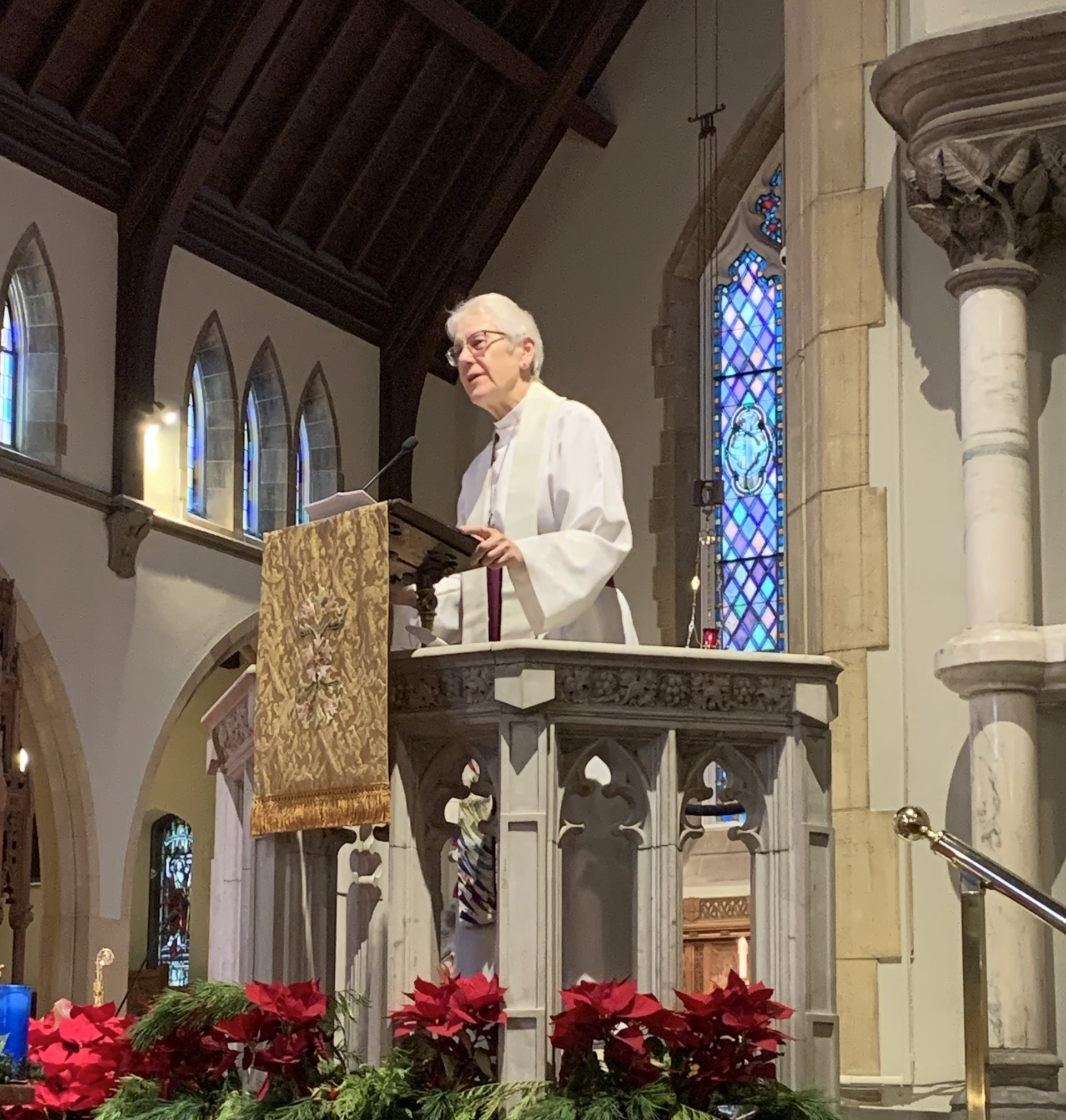Archbishop Linda Nicholls, primate of the Anglican Church of Canada, made a happy return to Christ Church Cathedral to keep up a tradition of delivering a sermon on New Year’s Day. Due to the pandemic, she was not able to come to Ottawa for the new year in 2021 and 2022 and delivered her sermons online.
She began this year’s homily by acknowledging that it is difficult for people remain hopeful when there is so much pain and suffering in the world.
She mentioned the war in Ukraine and described the situation she witnessed on a recent trip to the Holy Land: “where the Christian community clings precariously to sustain a presence—where settlements continue to be built on internationally agreed Palestinian territory; where the movement of Palestinians for work or even healthcare is limited or inconsistent; where the new government includes a coalition with extreme right-wing leaders whose policies are frightening in their effects and the situation is deteriorating rapidly.”
And turning her view back to Canada, she acknowledged,
“Even as I descry the occupation of Palestinian lands, I hear the echo of hypocrisy as we in Canada are asked about our occupation of Indigenous areas where treaties have not been honoured—or the land ever ceded at all. The work of reconciliation is a long, continuing, painful journey.”
She spoke of the increasing numbers of people who are turning to food banks as economic pressures force them to choose between paying for rent or food and the complex global problem of mitigating climate change.
“In the midst of it all, our church is feeling fragile,” she said, noting that not all parishioners have returned to attending church since the COVID lockdowns. “Financial resources are reduced, and we struggle to express the gospel with joyful hope to new generations.”
In the face of all of that, the archbishop said, “it is easy to sink into despair—and wonder about the power of the gospel to make a difference…. What word of God will sustain us in 2023?
Nicholls began to answer that question acknowledging that “we are not given a map or timeline for the fullness of God’s reign to be known—only the stories of how it has begun. The seeds of God’s reign are in the stories we have of Jesus and how God chooses to be with us. God comes into the world now—not with a flood to wipe us out and start again—not in power but in vulnerability; not to royalty but in poverty. God comes quietly—to ordinary people—in their daily lives—and is revealed to those willing to see and respond….
“If I wanted to transform the world—would I start so small?” she asked. “Edward Lorenz, a mathematician and meteorologist, proposed a theory that even the flap of a butterfly’s wings at a great distance could change weather patterns in unpredictable ways! The ‘Butterfly effect’, as it is known, has become a metaphor for the truth that a small action can lead to much bigger and unexpected changes than anticipated.”
The primate said that metaphor is one that can help us understand God’s activity in the world. “What began with a vulnerable baby entrusted to two ordinary parents—would grow and ripple out one disciple at a time. Every action of love, forgiveness, grace, a part of the whole vision of God’s reign. The question is not—Why is the world still so broken? But rather ‘what would it look like if God were not here?’”
She noted that although she began her sermon with “a litany of the disasters, pain and brokenness of our world in 2022… threaded through the year are also stories of acts of compassion, kindness, generosity, love and mercy.”
Reading through issues of the diocesan newspapers from across Canada, the archbishop said she was “struck by all the ways in which Anglicans are changing their communities and making God’s presence known through their generosity—food banks; community meals; anti-racism work; youth camps and activities; pastoral care; refugee sponsorship and so much more…
“We do make a difference—local, small, and real. We will never know the full impact of our response to God—only that it matters.” In closing, she added: “May we find encouragement, hope and joy as we face 2023 having met ‘God with us’ in Jesus Christ and making him known in this hurting world.”
God comes quietly—to ordinary people—in their daily lives—and is revealed to those willing to see and respond….


Saint Mary’s Church, Westmeath — Deanery of the Northwest